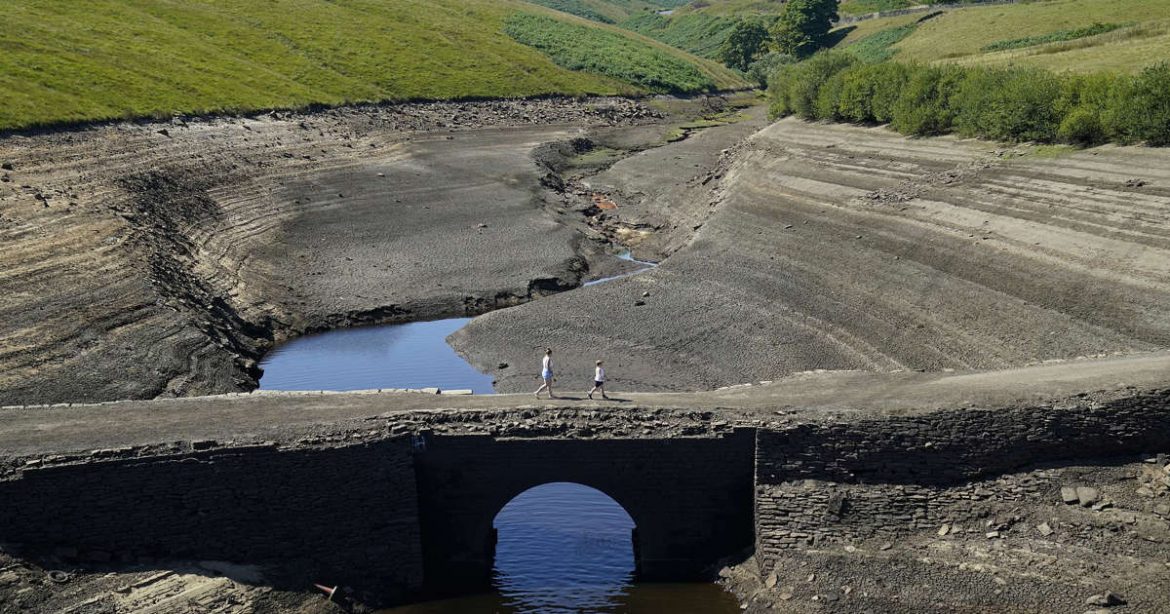Experts in the UK have said the government risks sleepwalking into drought, after England experienced an extremely dry February with very little rain forecast for spring.
Farmers struggled to plant and harvest crops last year when most of England was plunged into drought conditions with water companies preparing to take drastic action, including banning the filling of public swimming pools and cleaning non-domestic buildings.
Dry conditions such as the one experienced last year are beginning again. In England, the spell from 1 to 20 February was the driest since 1993 as Hertfordshire recorded an average of only 0.7mm of rain in February – 1% of its normal average for the whole month while the south of England in general was very dry, having 6% (3.8mm) of its February average.
Conditions are likely to stay dry, and experts have said England could be one dry spell away from a worse situation than last year, as reservoirs are still not refilled. The Met Office’s three-month outlook shows that hot, dry weather is likely this spring, and river flows across England are below normal, with some exceptionally low, according to the UK Centre for Ecology and Hydrology data portal.
“It has been dry. England has seen approaching a quarter of the rainfall that we would normally expect in February, although January was just over average. These figures come off the back of a relatively dry year last year. There is little precipitation covered in the forecast for the next few days and the outlook for March is that the month is more likely to be dry than wet,” a Met Office spokesperson was reported to have said.
Read also: Scientists say deflecting sun’s rays to cool overheating Earth needs study
However, Stuart Singleton-White, the head of campaigns at the Angling Trust, said the government and water companies had not yet prepared for the crisis that could be about to hit.
According to him, the risk of returning to drought in 2023 is real as both Cornwall and the east of England are still in drought while many rivers have not properly recovered, and he called for proper planning to prevent some of the events witnessed last year.
“We need to see water companies and the Environment Agency doing more to ensure the public are kept informed, encouraged to value and save water where they can, and be aware of the impact another year of drought would have on our water environment and the wildlife that depends on it. Water companies need to get ahead of the game. They need to introduce measures to help us conserve water a lot earlier than they did in 2022. We should not wait until the crisis hits before we take action,” he said.
Mark Owen, also from the Angling Trust, who chairs the National Drought Group, added: “The recent dry spell possibly leading in to spring is particularly worrying. A dry spring and another drought or hot summer will compound the impacts on fish species that we saw last year.
“We are looking forward to seeing government, water companies and other abstractors plans to manage demand down to ensure that there is sufficient water in our rivers to protect wildlife. We need the help of all sectors to ensure that the impacts of the environmental drought that we saw last year are not repeated.”
Story was adapted from the Guardian
